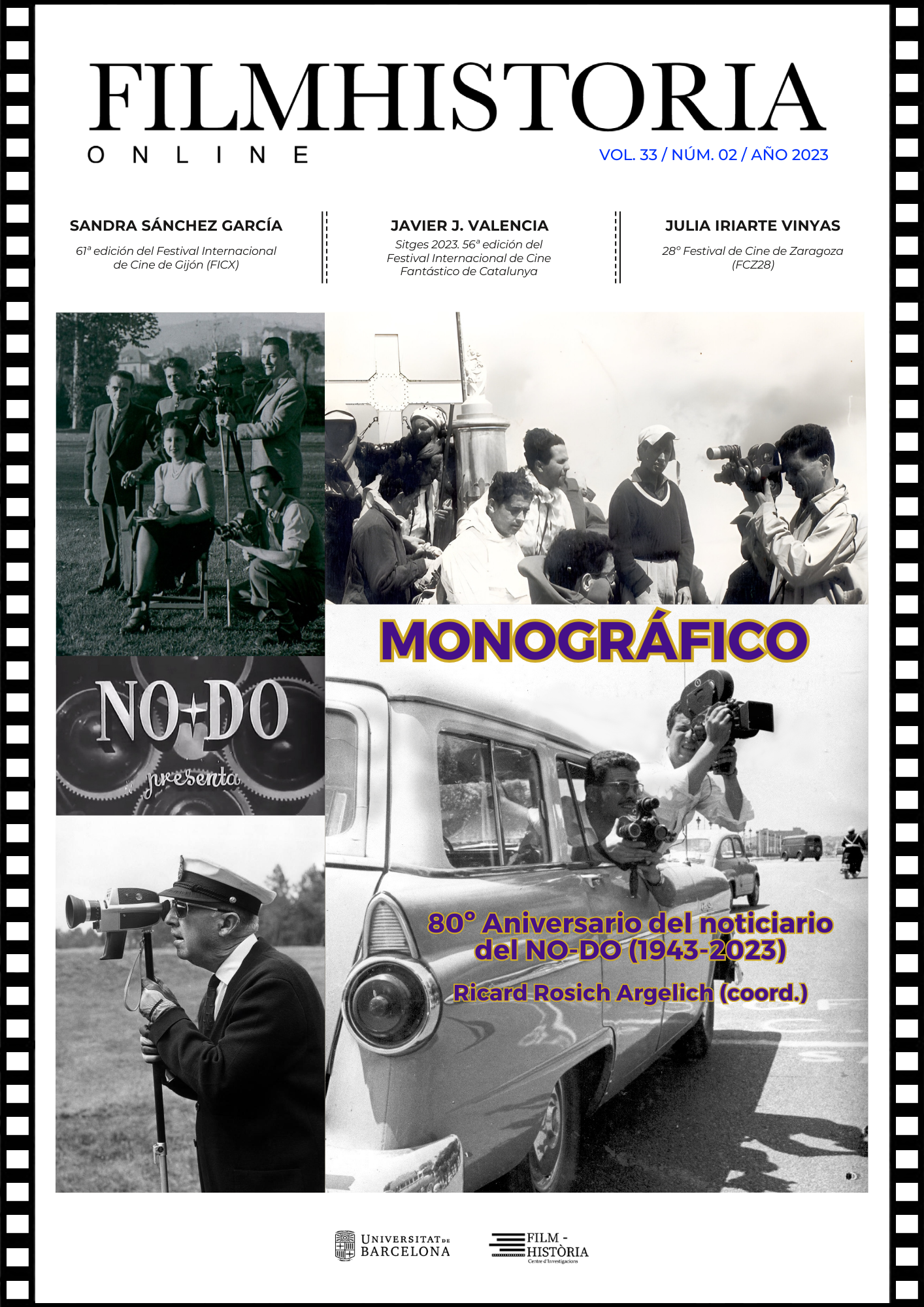TEACHING TO SERVE. WOMEN IN THE NO-DO (1943-1975)
DOI:
https://doi.org/10.1344/fh.2023.33.2.105-126Keywords:
Propaganda, Image, Woman, Francoist dictatorship.Abstract
Francisco Franco’s dictatorship demonstrated a remarkable ability to adapt to the political, social and economic changes that marked the context of Europe from the end of the World War II to the end of the Cold War. The NO-DO, as the indisputable official propaganda organ of the regime between 1943 and 1975, qualified and misrepresented with its images much of the great process of social and economic change that Spain was experiencing at that time, especially after 1957 with the development. For this reason, the paper that follows wants to approach to a very specific aspect and this is the one related to the treatment of women in their various appearances in the newsreels: fashion, studies, work, mother, wife, sport, artist... Among many others. In short: it is about showing if the changes that were taking place in Spain were reflected in the considerations made by the NO-DO about the woman, or if they kept equal through the time.







